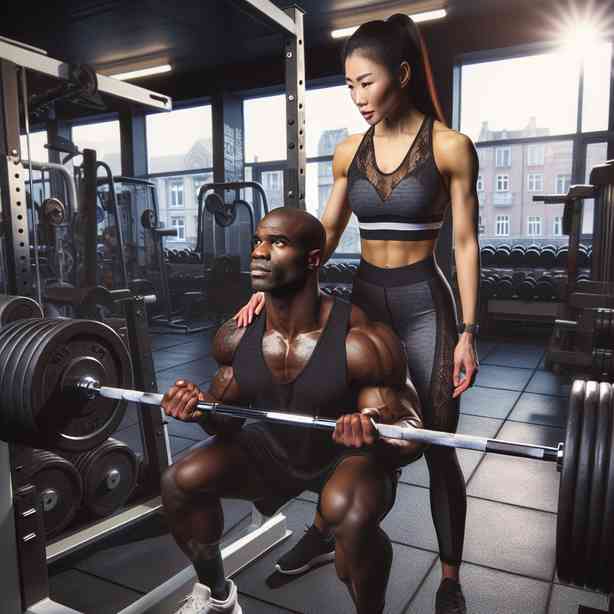
When you find yourself in a position to spot for someone stronger than you in a lifting environment, it is essential to recognize the importance of safety, technique, and communication. Spotting not only involves being physically present to catch a weight if it falls, but also requires an understanding of the dynamics of the lift and the unique needs of the lifter. This knowledge can significantly enhance the lifting experience for both the spotter and the lifter, creating a supportive and encouraging atmosphere.
To begin with, understanding the role and responsibilities of a spotter is crucial. A good spotter should be attentive and vigilant at all times. This includes ensuring that the equipment is set up correctly and that the lifter is ready to begin their lift. Positioning yourself properly is equally as important. For example, when spotting for a bench press, you should stand at the head of the bench, ready to assist without obstructing the lifter’s movement. The goal is to provide help only when it’s genuinely needed, allowing the lifter to maintain their form and confidence during the exercise.
Moreover, communication with the lifter is paramount. Before the lift, it is advisable to discuss the lifter’s preferred method of spotting. Some lifters may want a more hands-on approach, while others may prefer less intervention. Establishing clear signals for when the lifter needs assistance can also make a significant difference. This is crucial for ensuring that both parties are on the same page, minimizing the risk of accidents or miscommunication during the lift.
As the lift begins, maintaining a strong focus is essential. Your attention should be solely directed towards the lifter, watching their movements carefully. Look for signs of struggle or fatigue. In instances where the lifter may be struggling, it is critical to react quickly, without overreacting. Being too eager to jump in can disrupt the lifter’s concentration or affect their performance, so it’s a balancing act that requires skill and intuition.
Another very important aspect to consider while spotting is the understanding of the specific lifts being performed. Each type of lift has its own set of mechanics and requirements. Whether you are spotting for a squat, bench press, or deadlift, understanding the body mechanics involved in each can greatly affect your ability to provide effective assistance. For instance, when spotting for squats, your position should be such that you can help guide the lifter back up without obstructing their motion.
Additionally, being aware of the lifter’s limits is crucial. Spotters should assess not only the weight being lifted but also the lifter’s experience and physical condition that day. Every lifter has good days and bad days. Respecting the lifter’s boundaries and encouraging them to lift within their capabilities ensures a safe and productive environment.
Building a rapport with the lifter can also enhance the experience for both of you. A positive relationship fosters trust, which is vital in a lifting scenario. When a lifter knows they have a reliable spotter, they may feel more confident in pushing themselves further than they normally would. Encourage them, offer positive reinforcement, and celebrate their achievements together. This bond can transform what might be a daunting task into a shared experience filled with enthusiasm and camaraderie.
Furthermore, it’s essential to know the emergency protocols in case something goes wrong. Accidents can occur, even in a controlled environment, and being prepared can make all the difference. Familiarize yourself with the procedures for dealing with falls or failed lifts, and ensure that you are physically capable of handling the scenario should it arise.
In conclusion, when you spot for someone stronger, it is not merely about being there for physical support. It involves a comprehensive understanding of the sport, technical aspects, communication skills, safety awareness, and a genuine commitment to helping others succeed. Mastering the art of spotting not only enhances the lifter’s performance but also enriches your own experience in the gym. As you cultivate these skills, you contribute to a respectful and supportive lifting community, which can be rewarding in countless ways.


